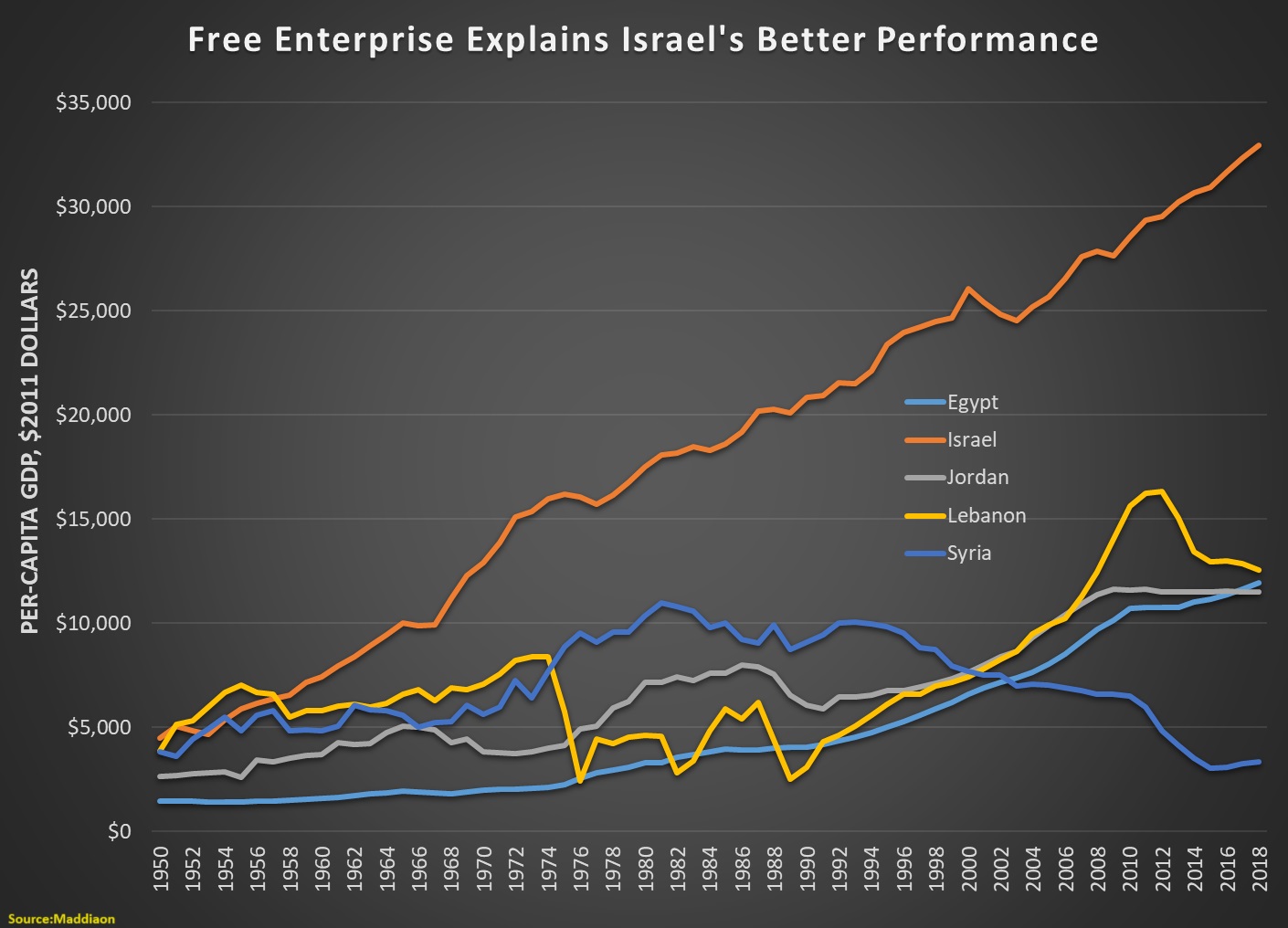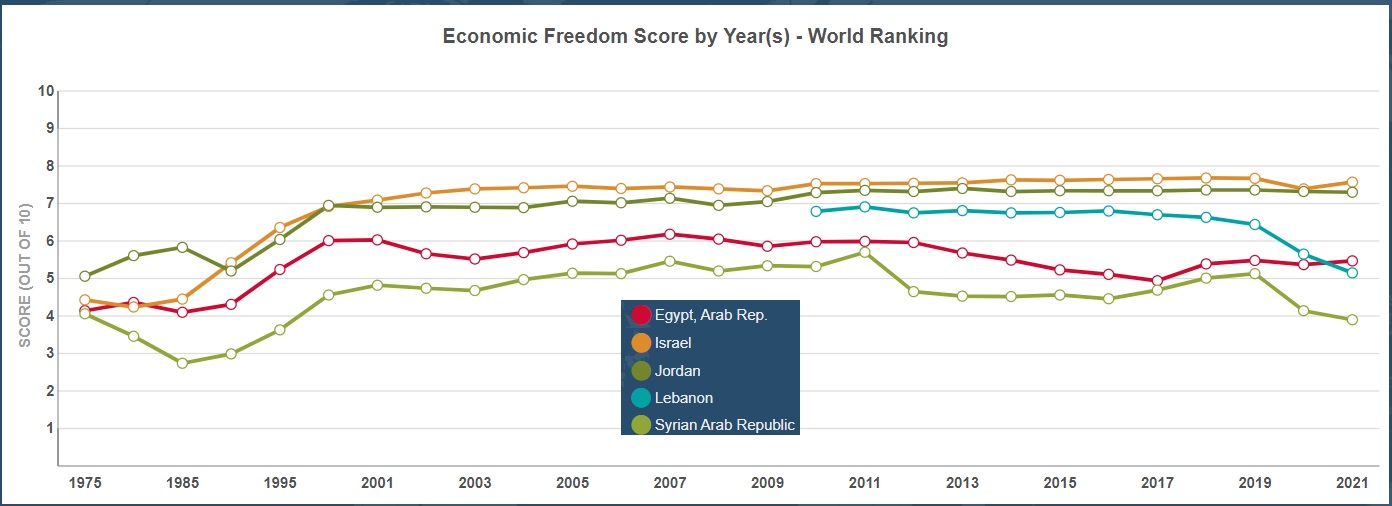Other than believing in Israel’s right to self-defense (as I wrote back in 2010, “What would you do if you were an Israeli?”), I don’t have any special insights about the conflict in the Middle East.
But I am willing to pontificate about economic policy in the region.
Let’s start with this chart, based on Maddison data, showing historical levels of per-capita economic output in Israel and surrounding countries. As you can see, all of the countries started with similar levels of prosperity, but Israel has vaulted way ahead over the past 70 years.
I’ll definitely be adding this chart to my anti-convergence club.
But I will offer some non-trivial caveats. These numbers almost certainly are distorted by everything from U.S. aid levels to internal turmoil in nations such as Lebanon and Syria.
But policy also plays a role.
As noted by James Pethokoukis of the American Enterprise Institute, Israel is richer because it allows more economic liberty.
Israel is a Western country combining liberal democracy and market capitalism that just happens to be located smack dab in the Middle East. It’s neighbors aren’t doing nearly as well. They’re all way down the income list…
If you look at the region based on the Fraser Institute index of economic freedom …you can really see Israel as the lone representative of those democratic capitalist Western values and the prosperity they generate. …Bottom line: I don’t have a five-point plan for achieving peace in the Middle East. However, I do understand some of the fundamental reasons why countries prosper economically. The countries in the Middle East that are currently not prospering can look to Israel as an example to see those reasons in action.
Since Jim mentioned the Fraser Institute, here’s the data from Economic Freedom of the World.
As you can see, Israel has a much greater level of economic liberty that Lebanon, Egypt, and Syria.
The bottom line is that there’s a lesson to be learned from this data. Regardless of your views on foreign policy, we know the policies that lead to more prosperity in the Middle East.
They’re the same policies that lead to more prosperity everywhere in the world.
P.S. Because of its bad fiscal policy, I’m surprised to see Jordan gets a decent score, not that far below Israel.


No comments:
Post a Comment